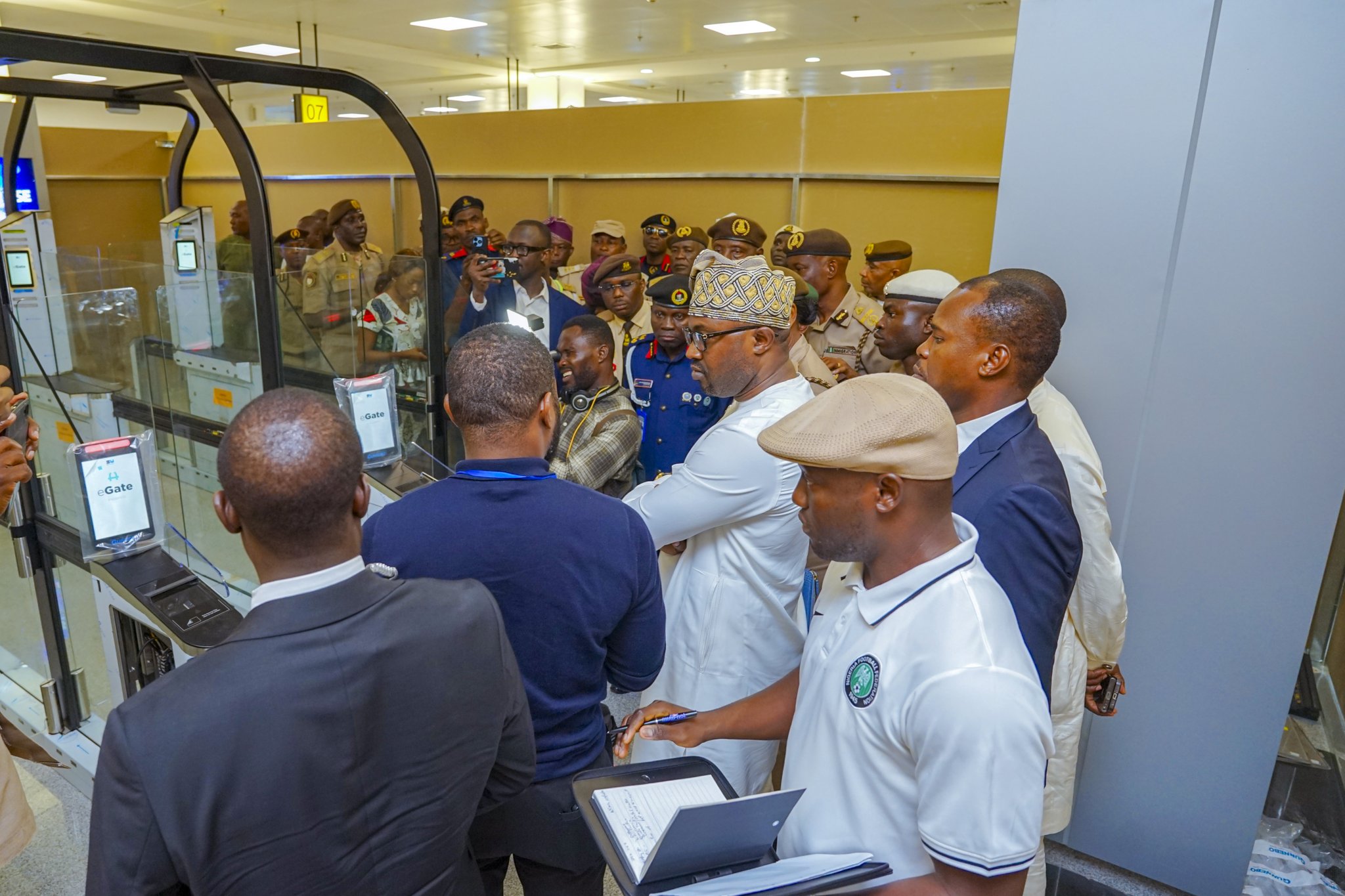Nigeria’s border security received a significant boost as advanced electronic gates installed across five international airports successfully intercepted multiple persons of interest, demonstrating the country’s enhanced capabilities in preventing cross-border crimes and terrorism.
Minister of Interior Olubunmi Tunji-Ojo revealed that the recently implemented e-gate systems led to the apprehension of ten individuals flagged by international security databases. Speaking during an appearance on Channels Television’s Politics Today, the Minister emphasized how this technology marks a crucial shift toward proactive security measures in Nigeria’s immigration control system.
The sophisticated e-gates, which operate by interfacing with Interpol databases and domestic security watchlists, represent Nigeria’s commitment to modernizing its border control infrastructure. This integration enables real-time verification of travelers’ identities and criminal history, significantly reducing the risk of wanted persons entering or leaving the country undetected.
“Nigeria is establishing itself as a no-go area for persons of interest,” Tunji-Ojo stated, highlighting the system’s effectiveness in strengthening national security. The minister emphasized that the technology’s implementation aligns with global best practices seen in countries like the United States and the United Kingdom, where preemptive security measures have proven crucial in preventing criminal activities.
A key feature of the new system is its ability to detect fraudulent travel documents through an advanced passenger information system. This capability has effectively eliminated the vulnerabilities associated with human interference in immigration operations, making document verification more reliable and efficient. The Nigeria Immigration Service now has the capacity to profile passengers before their arrival, adding an extra layer of security to the nation’s borders.
The minister stressed the importance of preventive measures in national security, explaining that the system’s primary goal is to intercept potential threats before they materialize into actual security incidents. You don’t want people to come into Nigeria, commit atrocities, then you now arrest them after people have lost their lives, after properties have been lost,” he emphasized, underlining the shift from reactive to proactive security measures.

This technological advancement represents a significant milestone in Nigeria’s border control modernization efforts. The implementation of e-gates across five international airports demonstrates the country’s commitment to adopting contemporary solutions for complex security challenges. By leveraging international databases and advanced verification systems, Nigeria has strengthened its position in the global fight against transnational crime and terrorism.
The success of the e-gate system extends beyond just apprehending persons of interest. It has streamlined the immigration process, reducing processing times while maintaining high security standards. The automation of border control procedures has not only enhanced efficiency but also minimized the potential for human error and corruption in immigration operations.
The integration with Interpol databases particularly stands out as a crucial feature, enabling Nigerian authorities to access real-time information about international criminals and suspects. This connectivity ensures that Nigeria’s border control system remains synchronized with global security updates, making it increasingly difficult for international criminals to exploit potential gaps in the country’s immigration system.
While the minister refrained from providing specific details about the apprehended individuals for security reasons, the successful interception of ten persons of interest within a short period demonstrates the system’s effectiveness. This achievement sends a strong message to potential criminals and underscores Nigeria’s growing capabilities in border security management.
The implementation of this advanced border control system reflects a broader trend in Nigeria’s approach to national security, emphasizing technology-driven solutions to long-standing challenges. As global security threats evolve, the country’s investment in modern border control infrastructure positions it to better respond to emerging challenges while facilitating legitimate international travel.
This development marks a significant step forward in Nigeria’s border security infrastructure, aligning the country with international standards in immigration control and demonstrating its commitment to maintaining robust national security measures in an increasingly interconnected world.



